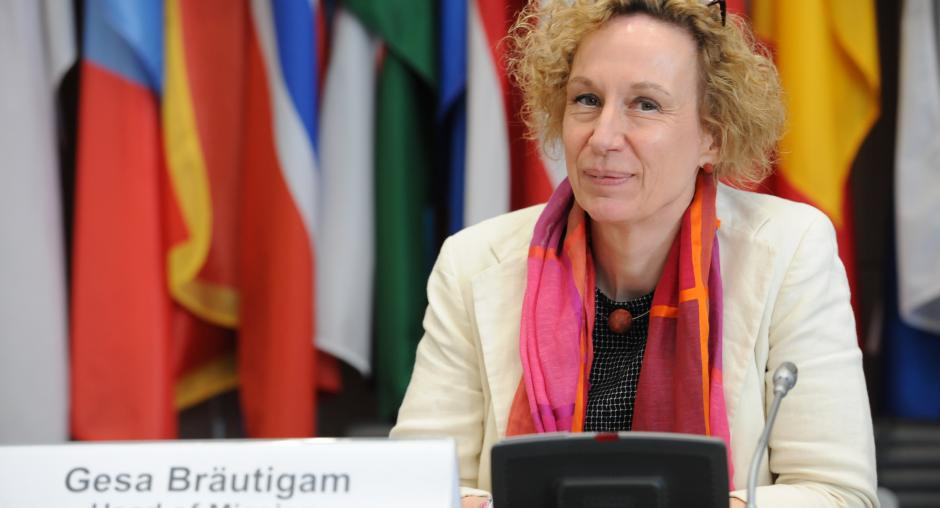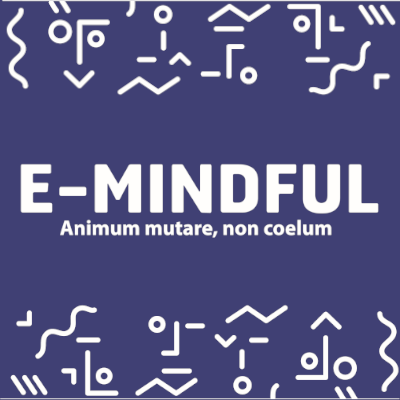Tuesday, 15 June 2021
Opening remarks
Ambassador Gesa Bräutigam, Head of Mission, Permanent Mission of Germany to the OSCE
Ms. Jagiello, Ambassador Zugic, distinguished partners and speakers,
Ladies and Gentlemen,
I am glad for this opportunity to join this kick-off meeting and provide the views of Germany, one of the countries involved in the E-MINDFUL project. But before doing so, allow me to express my personal appreciation for the efforts carried out by the Office of the Coordinator of the OSCE Economic and Environmental Activities. Ambassador Zugic, the engagement of your office towards impactful initiatives in key areas of action is notable; an engagement carried out with patience, intelligence and political tact. Not easy, but necessary.
The E-MINDFUL project is one of these initiatives. Not easy, but necessary.
How migration is narrated, represented and communicated has an immense impact on the security and resilience of our societies. As countries engaged towards peaceful and collaborative coexistence within our borders and transnationally, we cannot underestimate the adverse consequences of an increasingly polarized debate on migration and migrants.

Represented as a “crisis”, migration is often discussed in ways that tend to induce misperceptions. The persistent association with illicit acts such as smuggling and trafficking shows a worrying trend towards a progressive criminalization of the phenomenon, overshadowing the reality of the orderly and legal process of settling in another country, which remains by far the norm even in the present dynamic environment.
Such a narrative consolidates the idea that migration is not a reality of our inter-connected economies, but a permanent emergency to be stopped. In this discourse, prejudices are strengthened and xenophobic stereotypes sprout.
The immediate victims are the people on the move: those who flee conflicts and persecution, and rightly search for protection; those who are eager to learn more or wish their capacities and aspirations be recognized and rewarded equitably; those who have been living and working in many destination countries, contributing to the prosperity of hosting communities. But we all lose when scapegoating migrants for pre-existing pifalls: corruption, lack of transparency and cooperation, informal economy.
The increasing resistance from hosting societies poses an emerging threat to social cohesion and security while discouraging a proactive and positive approach to govern people’s movements. Even in mainstream positions, the alleged costs of receiving and integrating migrants are often seen as outweighing the opportunities for economic and cultural development which are opened by the same process.
However, allow me to be frank on this point: migration is not good or bad per se. Like any other human phenomenon, migration can display its positive effects when properly governed. And economic evidence confirms that a primarily restrictive approach to migration governance is counter-productive.
On the contrary, it increases irregular movements, social exclusion, informal employment up to exploitation. A shadow economy that undermines the efforts towards well-functioning labour markets, a vibrant eco-system for industries and small medium-sized enterprises, a transparent and innovative governance of economies.
The circulation of skills and human capital is a key contribution to increased connectivity of our economies. There are no longer countries of origin, transit and destination. The tension between globalism and nationalism is artificial. We all are simultaneously local, national and global citizens with overlapping identities. Yet, to build cohesive and diverse communities, we need to communicate migration carefully and effectively, in order to prevent new divisive lines, within countries and among countries.
These are the reasons behind Germany’s participation in the E-MINDFUL project: we wish to understand better the factors that shape people’s perceptions about migrants so that we can use this knowledge to increase our efforts towards resilient, inclusive, prosperous and innovative hosting communities, not only in Germany.
I am glad that the 2016 German Chairmanship somehow contributed to the development of this initiative. The review of migration-related commitments and other commitments in the economic dimension helped shaping the necessary consensus for the adoption of the Ministerial Council Decisions no. 3 and 4, on migraton governance and connectivity, two, inter-related aspects towards sustainable and inclusive growth.
I therefore wish to commend the efforts of the OCEEA and its partners, and express appreciation for the support of DG HOME. I am confident that this project will represent one additional contribution towards stability and security in the countries involved in the project, offering a promising experience for all the OSCE participating States.
Thank you
SUGGESTED CONTENT
